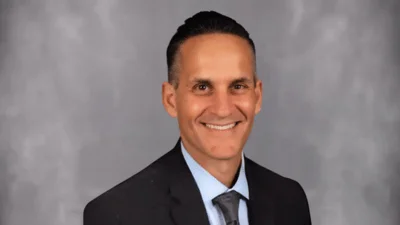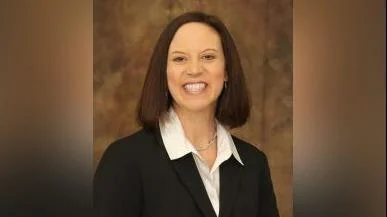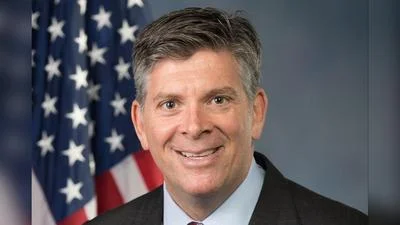State Representative Sharon Chung | ballotpedia.org
State Representative Sharon Chung | ballotpedia.org
According to the Illinois General Assembly site, the legislature summarized the bill's official text as follows: "Creates the Household Hazardous Waste Stewardship Act. Requires manufacturers, beginning January 1, 2027, to implement a stewardship program for covered products. Details manufacturer obligations under the stewardship program, including in the context of a stewardship organization comprised of manufacturers. Requires registration by April 1, 2026, and annually, for each manufacturer who sells covered products in the State and each stewardship organization. Details the roles of retailers and collections sites. Outlines stewardship plan components. Provides requirements for the Environmental Protection Agency for stewardship plan approval. Details requirements for a stewardship organization implementing a stewardship plan, as well as other statewide collection requirements. Details reporting requirements. Requires a stewardship organization to pay to the Agency an annual fee of $200,000, split if there is more than one stewardship organization. Provides for responsibilities for the Agency. Provides for immunity from antitrust laws. Provides for rulemaking authority for the Agency. Provides for civil and criminal penalties. Allows collection of covered products by a premium collection service. Makes findings. Defines terms. Effective immediately."
The following is our breakdown, based on the actual bill text, and may include interpretation to clarify its provisions.
In essence, the bill establishes the Household Hazardous Waste Stewardship Act requiring manufacturers of household products containing hazardous substances to create a stewardship program by January 1, 2027, to manage waste from these products in Illinois. Manufacturers must register annually and cover specified costs related to waste collection, transport, and disposal. Retailers cannot sell products from non-compliant manufacturers, and collection sites must maintain accurate cost records. The Illinois Environmental Protection Agency will approve stewardship plans and ensure compliance. Additionally, the bill outlines penalties for non-compliance and allows for premium collection services, with an annual manufacturer fee contributing to Agency costs. The bill is effective immediately upon becoming law.
Sharon Chung has proposed another two bills since the beginning of the 104th session.
Chung graduated from Illinois Wesleyan University with a BA.
Sharon Chung is currently serving in the Illinois State House, representing the state's 91st House District. She replaced previous state representative Mark Luft in 2023.
Bills in Illinois follow a multi-step legislative process, beginning with introduction in either the House or Senate, followed by committee review, floor debates, and votes in both chambers before reaching the governor for approval or veto. The General Assembly operates on a biennial schedule, and while typically thousands of bills are introduced each session, only a fraction successfully pass through the process to become law.
You can read more about bills and other measures here.
| Bill Number | Date Introduced | Short Description |
|---|---|---|
| HB1893 | 01/29/2025 | Creates the Household Hazardous Waste Stewardship Act. Requires manufacturers, beginning January 1, 2027, to implement a stewardship program for covered products. Details manufacturer obligations under the stewardship program, including in the context of a stewardship organization comprised of manufacturers. Requires registration by April 1, 2026, and annually, for each manufacturer who sells covered products in the State and each stewardship organization. Details the roles of retailers and collections sites. Outlines stewardship plan components. Provides requirements for the Environmental Protection Agency for stewardship plan approval. Details requirements for a stewardship organization implementing a stewardship plan, as well as other statewide collection requirements. Details reporting requirements. Requires a stewardship organization to pay to the Agency an annual fee of $200,000, split if there is more than one stewardship organization. Provides for responsibilities for the Agency. Provides for immunity from antitrust laws. Provides for rulemaking authority for the Agency. Provides for civil and criminal penalties. Allows collection of covered products by a premium collection service. Makes findings. Defines terms. Effective immediately. |
| HB1538 | 01/21/2025 | Amends the Sanitary District Act of 1917. Provides that the board of trustees of the Bloomington and Normal Water Reclamation District may enter into an agreement to sell, convey, or disburse treated wastewater to a private entity located within 50 miles of the District's boundaries. Provides that the Bloomington and Normal Water Reclamation District may accept wastewater for treatment from a private entity located within 50 miles of the district's boundaries. Provides that the Bloomington and Normal Water Reclamation District may acquire and accept, by gift, grant, purchase, or otherwise fee simple interest or any lesser interest as may be desired in real property necessary to carry out its powers under the provisions. Effective immediately. |
| HB1358 | 01/14/2025 | Amends the School Code. Creates the Waiver Process Task Force. Sets forth provisions concerning membership, meetings, and support services. Provides that the purposes of the Task Force are to examine the current waiver response process and make recommendations on a more equitable and fair waiver response at the elementary and secondary school levels in this State; develop and use metrics to access the viability of waiver requests and the impact of such requests on students in kindergarten through grade 12; promote training and professional development on creating waiver requests that include accountability measures for teachers and other community stakeholders across this State; identify and seek local, State, and national resources to support an equitable and fair waiver process; and complete such other strategies as may be identified by the Task Force. Provides that the Task Force shall make recommendations to the Governor and the General Assembly on how waivers should be requested, how waivers should be reviewed for approval, and how to demonstrate the ability to fulfill accountability measures proposed in requested waivers. Requires the Task Force to file a report with the Governor and the General Assembly on or before December 31, 2025. Effective immediately. |





 Alerts Sign-up
Alerts Sign-up